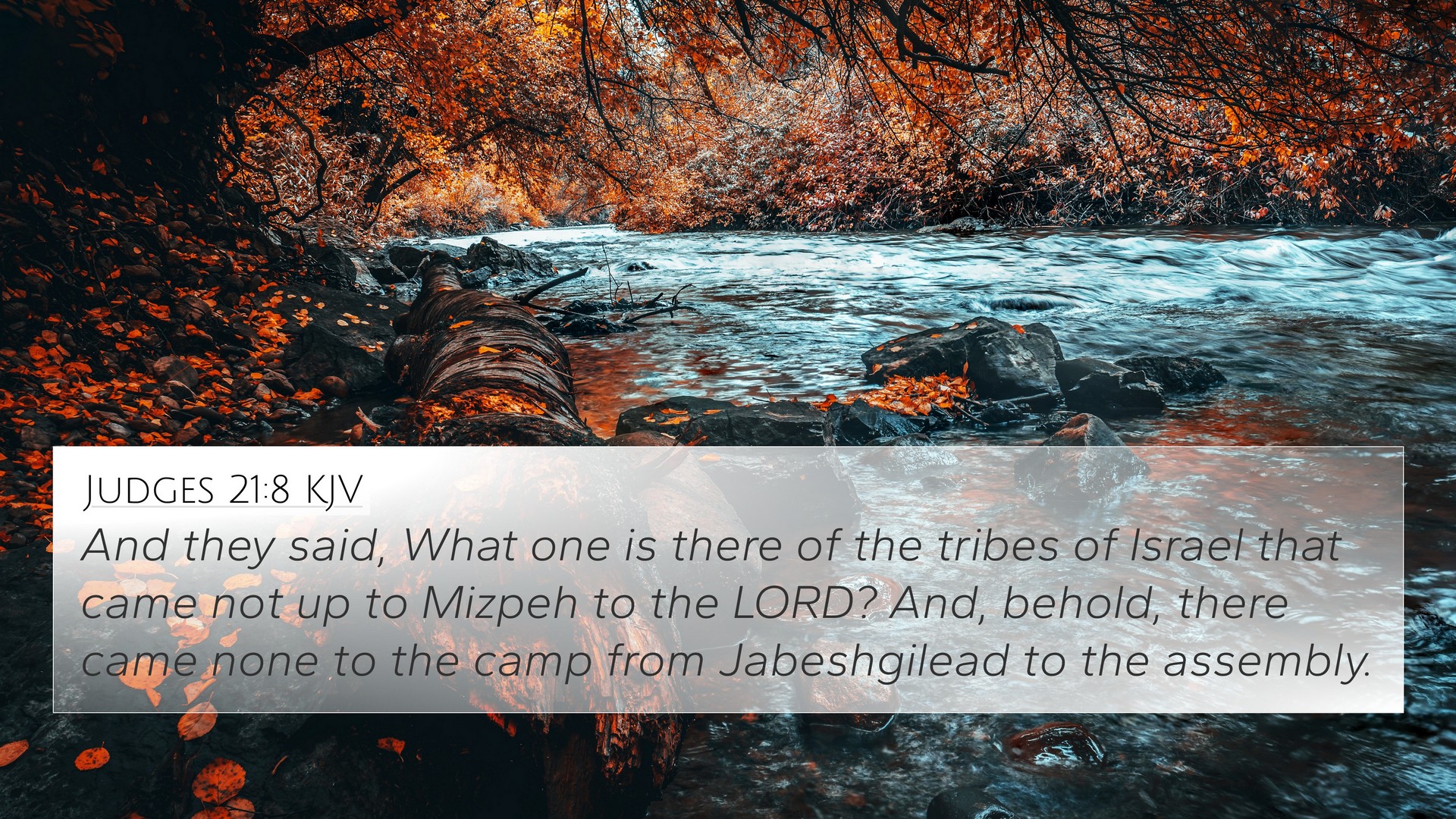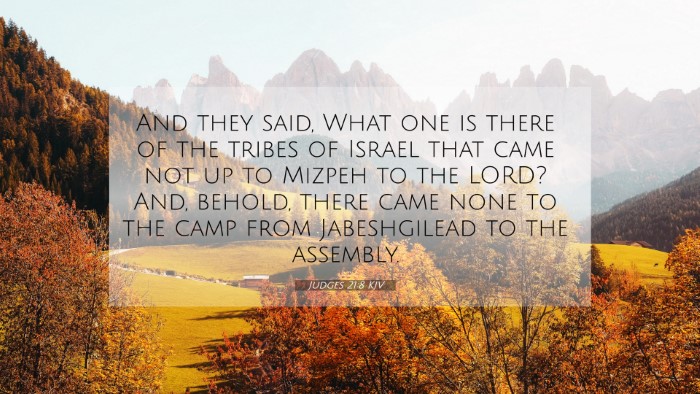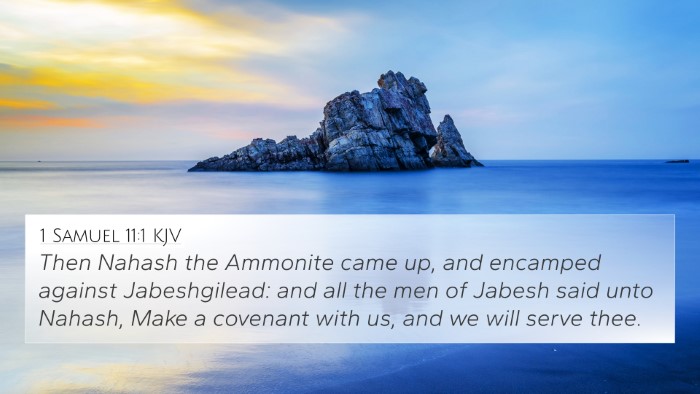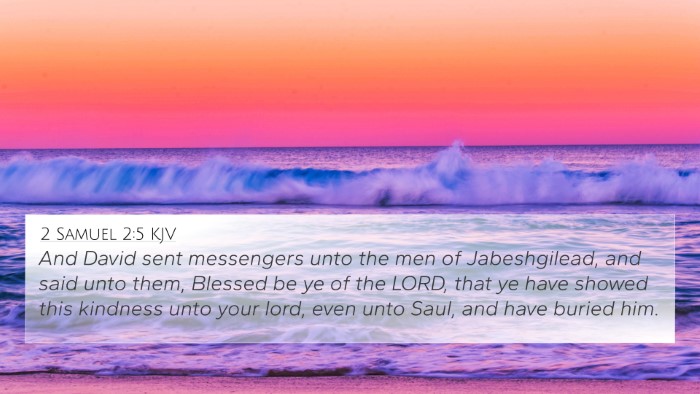Judges 21:8 - Summary and Interpretation
Judges 21:8 states:
“And they said, What one is there of the tribes of Israel that came not up to Mizpeh to the Lord? And, behold, there fell none to the camp from Jabeshgilead to the assembly.”
This verse reflects the aftermath of a tragic civil conflict among the Israelite tribes and highlights the consequences of their actions during this period.
Context and Background
The Book of Judges discusses a time of moral decay and disunity in Israel, where there was no king, and everyone did what was right in their own eyes. The specific situation here involves the tribe of Benjamin and their punishment due to the vile act that led to a civil war.
Meaning and Commentary Insights
This verse serves several purposes as noted in various public domain commentaries:
- Matthew Henry: Emphasizes the unification and responsibilities of the tribes of Israel regarding communal obligations. The tribes gathered to take significant action against the wrongdoing in Benjamin, showcasing their collective commitment to uphold justice.
- Albert Barnes: Focuses on the failure of the city of Jabesh-gilead to heed the call to Mizpah, indicating a severe consequence for their inaction. This signifies the importance of unity amongst the tribes and the dire ramifications of isolation or standing apart.
- Adam Clarke: Points out that this request for accountability reflects the character of the Israelites as a whole. It serves as a cautionary tale about the dangers of neglecting communal duties, which can lead to division and suffering.
Comparative Bible Verse Analysis
This verse can be cross-referenced with several others that address themes of unity, justice, and accountability among God’s people:
- Deuteronomy 13:12-18: Discusses the consequences of failing to act against evil within the community.
- Joshua 22:20: References a similar theme of accountability among the tribes of Israel.
- Galatians 6:1: Highlights the responsibility of believers to restore those who have fallen into sin.
- Matthew 18:15: Jesus’ teaching on how to deal with sin within the church underscores community accountability.
- 1 Corinthians 12:12-26: Paul’s metaphor of the church as one body reinforces the necessity of unity.
- Romans 12:4-5: Describes how individual members of the church function within the body, again highlighting collective responsibility.
- Hebrews 10:24-25: Encourages believers to gather together and support one another, reflecting communal obligations.
Connections to Thematic Bible Verse Connections
Illustrating linking respect for communal duties, Judges 21:8 connects with overarching biblical themes:
- Collective Responsibility: Throughout the scriptures, God’s people are called to hold each other accountable and work together for righteousness.
- Consequences of Division: Many biblical accounts, including this story, illustrate how division leads to judgment and calamity.
- Justice and Mercy: The necessity for justice within the community reflects God’s ultimate desires for His people.
Tools for Bible Cross-referencing
For those seeking to deepen their understanding of scripture through cross-referencing:
- Bible Concordance: A valuable tool to find where specific words or themes appear across scriptures.
- Bible Cross-Reference Guide: A resource for locating similar themes, principles, or narratives.
- Cross-reference Bible Study: Methods that involve studying related passages together to gain a fuller understanding.
- Bible Reference Resources: Tools and materials that provide insight into scriptural connections.
Conclusion
Judges 21:8 serves as a reminder of the importance of unity, accountability, and the consequences of neglecting communal responsibilities in faith life. Understanding this verse through various cross-references enhances our grasp of biblical themes and principles that are foundational to faith and practice.





